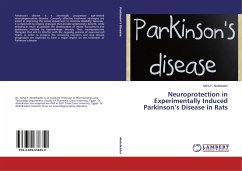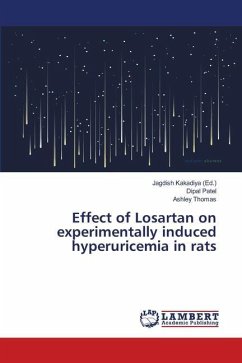Parkinson's disease is a chronically progressive age-related neurodegenerative disorder. Currently effective treatment strategies are aimed at improving the motor impairment to minimize disability. However, it is important to employ strategies that provide symptomatic benefit, while delaying as much as possible the development of motor fluctuations and dyskinesias induced by dopaminergic therapy. Thus, neuroprotective therapies that aim to interfer with the ongoing process of neuronal cell death, in order to preserve the remaining neurones and stop disease progression are expected to have a major impact on the treatment of Parkinson's disease.
Bitte wählen Sie Ihr Anliegen aus.
Rechnungen
Retourenschein anfordern
Bestellstatus
Storno








